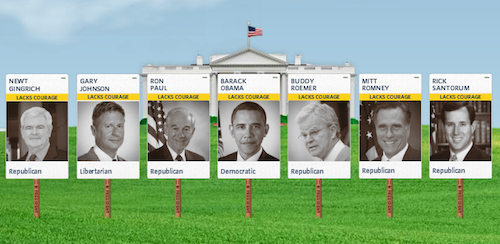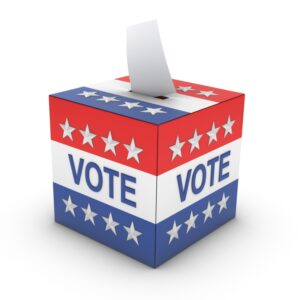 And so it ends. Or, begins? Continues?
And so it ends. Or, begins? Continues?
The elections are over, and the American people have chosen. Whether state representative, Senator, Mayor, local judge, or President of the United States—we have chosen.
If your guy (or gal) won, you’re elated. Your confidence in the American people is restored or confirmed, and you’re glad that the majority of your neighbors are “thinking straight”.
If your guy (or gal) lost? Well, we’re in for it. We’ll get what’s coming to us. We have made our bed and now we get to lay in it. We can try again in a year or two or four, if there’s still a country left!
No matter which way the elections turned out, this is how the day after would have been. One group or the other celebrating or complaining, depending upon the results.
A Quick Lesson from History
What I have said for so long (here on this blog site, and in many conversations) is that elections are not where changes are made. They aren’t. Elections reveal where we already are. And what I see is that we are a very divided, and even confused nation.
In one way, that’s what we’re supposed to be. In what we call the Federalist Papers, John Jay, Alexander Hamilton, and James Madison laid out the reasoning behind the Constitution, so that everyone in every state could understand the idea of the Union that was being proposed. (There already was a Union, but it was so loose that it really almost wasn’t a Union.) One of their arguments for stability in such a diverse group of people—yes, even when we were only thirteen states, we were very diverse—was that there would be enough “factions” that no one majority group would dominate any minority groups. The more diverse the opinions and “passions” of the group (or faction, as Madison called them) the greater the likelihood of there being compromise; working together for their common good.
Listen to these words from Federalist 10:
The latent causes of faction are thus sown in the nature of man; and we see them everywhere brought into different degrees of activity, according to the different circumstances of civil society. A zeal for different opinions concerning religion, concerning government, and many other points, as well of speculation as of practice; an attachment to different leaders ambitiously contending for pre-eminence and power; or to persons of other descriptions whose fortunes have been interesting to the human passions, have, in turn, divided mankind into parties, inflamed them with mutual animosity, and rendered them much more disposed to vex and oppress each other than to co-operate for their common good. So strong is this propensity of mankind to fall into mutual animosities, that where no substantial occasion presents itself, the most frivolous and fanciful distinctions have been sufficient to kindle their unfriendly passions and excite their most violent conflicts. But the most common and durable source of factions has been the various and unequal distribution of property. Those who hold and those who are without property have ever formed distinct interests in society. Those who are creditors, and those who are debtors, fall under a like discrimination. A landed interest, a manufacturing interest, a mercantile interest, a moneyed interest, with many lesser interests, grow up of necessity in civilized nations, and divide them into different classes, actuated by different sentiments and views. The regulation of these various and interfering interests forms the principal task of modern legislation, and involves the spirit of party and faction in the necessary and ordinary operations of the government.
Doesn’t that sound like us today? Intriguing.
I’m getting slightly off track here. Please click through to Federalist 10, though, and read the rest. (And 9, too, since 10 is “part two”.) Better yet, read all of the Federalist Papers. It’s a great way to understand where we came from, who we are supposed to be (as a nation) and just republican/representative government in general. We recommend The Original Argument, a collection of these papers, “Adapted for the 21st Century” (says the publisher). We read it together with our 13- and 10-year-old sons. Very interesting history/civics lessons!
Back to my point: Elections reveal who we are, they don’t change who we are.
This is very important. Elections are in place because, one, we are a free people who have chosen to elect our representatives/leaders from amongst ourselves, and two, they occur “at regular intervals” to ensure that we remain a free people, and no one elected leader (or group of them) can usurp and retain that power indefinitely.
Elections are definitely important, but it’s not really where (true) change comes from.
Legislating Morality
Do you believe that too many people are being overlooked and forgotten by the systems in place, having to go without good food or medical care because those with money are not doing their fair share to correct this injustice? Do you know that what God cares about most is that we care for those who need it the most? Do you also feel that so many people are just blind to this!? “Why can’t they see how wrong they are!?”
Do you believe that all men are created equal, that they are endowed by their Creator with certain unalienable Rights, that among these are Life, Liberty and the pursuit of Happiness? Do you feel that economy, commerce, and thus, communities will thrive if only they are free of heavy—and unnecessary—government intervention, regulation, restrictions, and especially taxing. (AND, do you feel that the money being collected for taxes is not only exorbitant, but equally wastefully spent or more so?) Then, with these truths being so obvious to you, do you feel incredulous that so many people are just blind to this!? “Why can’t they see how wrong they are!?”
…
So, do you truly believe that “those people”—either side—will change if you or someone who agrees with you is given a place of power that would allow them to force—by law—the actions that you wish them to take? Will that actually foster the change you desire?
You can NOT legislate morality. (But… we should stop people from killing each other. It’s rather difficult to co-exist when murder is an acceptable response to a grievance.)
It is right to want to help people, especially the ones who can’t help themselves.
It is right to hate greed, and to stop any actions that are a result of it.
It is right to love freedom.
It is right to encourage personal responsibility and education, and an active love for our neighbors.
But you can’t make that happen by electing someone, or passing a law.
I Think We’ve Been Here Before…
There is a post I’ve not yet finished called “The Tytler Cycle” (the attribution of the “cycle” to Alexander Tytler is questioned, but the veracity of the words are not in doubt, proven by history again and again.)
A democracy is always temporary in nature; it simply cannot exist as a permanent form of government. A democracy will continue to exist up until the time that voters discover that they can vote themselves generous gifts from the public treasury. From that moment on, the majority always votes for the candidates who promise the most benefits from the public treasury, with the result that every democracy will finally collapse due to loose fiscal policy, which is always followed by a dictatorship. The average age of the world’s greatest civilizations from the beginning of history has been about 200 years. During those 200 years, these nations always progressed through the following sequence:
- From bondage to spiritual faith;
- From spiritual faith to great courage;
- From courage to liberty;
- From liberty to abundance;
- From abundance to selfishness;
- From selfishness to complacency;
- From complacency to apathy;
- From apathy to dependence;
- From dependence back into bondage.
OK, so, different folks will place us (the United States) at various places on that cycle, but most will place us somewhere in the lower part of that list. Where would you say we are?
Regardless, it does seem to be a cycle that we (human beings) can not break out of. It happened many times in the Bible—just read the book of Judges. Every time I read that book I can’t help but think, WHAT are they thinking?? It has happened through history, and it will keep happening.
I do believe we are somewhere on the lower part of the list, but not to the bottom. And I think we, as a society, keep wanting to go further towards bondage. We don’t WANT liberty. We want to be told what to do, what to think… and we want to have everything we need (or want), without the cost or effort it should take to get it.
I believe that was revealed by our elections. We voted for other people to take care of stuff for us: “the rich”, the federal government. I think that is our mindset, worldview, paradigm. (Not all of us, but a majority of us.) It was evidenced by not only the choice for president, but many other elections as well, including various proposals (legalization of marijuana, gay marriage, etc.) albeit in somewhat different applications.
I’ll say it once more: Elections reveal who we are (and what’s important to us), they do not change who we are.
Education, education, education.
A free society, who chooses their own leaders—and also their own laws and codes of conduct, which are based on some commonly understood and agreed upon moral foundation—must be educated. We have public education, higher education, lower education? There’s no shortage of talk about education. But the “short” of it is that we are not educated.
(This—history of education, current state of education—is an enormous subject that I will not attempt to cover here. There are many books… and I have brought it up from time to time already. Browse this tag and this tag, if you’d like.)
The only way real change comes is through generations and generations of education and choices/action. Slavery was outlawed in the U.S. on January 1st, 1808—following generation after horrible generation of a reality that never should have been—but it took until 1865 to officially set all of the slaves free. And then it took another one hundred years to allow equal rights to the descendants of those who had been slaves.
Today we think it’s a “choice” to end a life begun in a woman’s womb. Certainly it is, as much as slavery was a “choice”. We think it’s a choice to marry someone of your same gender (well, some would say it’s not a choice…) and of course that is true, too.
We are all given choice. Free will. We can do whatever we’d like, really. The issue is the consequences, and the previously agreed upon “standards” that will govern a society, and our interaction with our neighbors. Clearly there are different thoughts, opinions, and “passions” regarding that currently in our society, and I think there will continue to be. (Partly I think we’re becoming less diverse because of the way we are educating our younger generations: teaching them what to think, rather than how to think.)
In the end we get to decide, and then we get to live with those choices. Nothing will change regarding abortion no matter which candidate we select. And if you believe that we as a society should mandate caring for the poor (or the not-wealthy) by taxing “the rich”, you’re not going to win over those who disagree simply by electing a candidate who will enact such policies.
Ultimately you can only “win” (read: enact true change) by educating people to the strengths of what you believe. People are smart, and can be trusted when given the facts. We are all endowed by our Creator with freedom to know and to choose. Whether we won or lost an election, nothing changed because of that. The only real change happens inside someone’s heart, and mind, and then spreads outward from there. (In their home/family, to their community, and beyond.)
(Note: I’m not sure that we want to make it our goal to change other people’s thinking. But, that is my inner libertarian coming out…)
We will not transform America (one way or another) by an election. Any election, with any result. But, God willing, we Americans will return to the One whom so many of the Founders knew and trusted, and repeatedly credited with the formation of this Great Experiment called the United States of America. I don’t see the majority of us being founded in our trust of Him. We are still a free people choosing and being our own government, though, not by force or lineage. That is unique in history, and was greatly celebrated when we accomplished it just two hundred thirty-six years ago.
It still should be today. Elections are wonderful. But don’t put too much stock in them for “accomplishing your mission”. They’re a good barometer of who we are, and what we think.
And there’s another one coming soon.
Last Words
Finally, for those who follow Jesus, I leave you with these two thoughts:
Everyone must submit to governing authorities. For all authority comes from God, and those in positions of authority have been placed there by God. So anyone who rebels against authority is rebelling against what God has instituted, and they will be punished. For the authorities do not strike fear in people who are doing right, but in those who are doing wrong. Would you like to live without fear of the authorities? Do what is right, and they will honor you. The authorities are God’s servants, sent for your good. But if you are doing wrong, of course you should be afraid, for they have the power to punish you. They are God’s servants, sent for the very purpose of punishing those who do what is wrong. So you must submit to them, not only to avoid punishment, but also to keep a clear conscience.
Pay your taxes, too, for these same reasons. For government workers need to be paid. They are serving God in what they do. Give to everyone what you owe them: Pay your taxes and government fees to those who collect them, and give respect and honor to those who are in authority. —Romans 13:1-7
And, most importantly…
…the LORD has told you what is good, and this is what he requires of you: to do what is right, to love mercy, and to walk humbly with your God. —Micah 6:8


 And so it ends. Or, begins? Continues?
And so it ends. Or, begins? Continues?